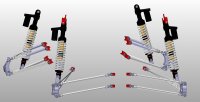巴哈赛车悬架系统设计(含CAD零件装配图,CATIA三维图,ANSYS,Adams)(任务书,开题报告,文献摘要,论文说明书16000字,CAD图12张,CATIA三维图,ANSYS分析,Adams仿真)
摘 要
在巴哈赛车的设计过程中,为了应对复杂的越野道路工况,在不降低赛车其他性能的前提下,需要设计一款具有良好的抗侧倾、抗震和耐冲击性能的悬架系统,此悬架系统还应具备足够大的压缩行程以提供赛车足够的通过性。本次毕业设计首先对现有的悬架形式进行了研究并选取了合适的巴哈赛车悬架形式,前悬架采用双横臂式独立悬架,后悬架采用多连杆式独立悬架;其次通过将大学本科所学基础知识与专业知识相结合,以理论为基础,从需求出发对巴哈赛车的前、后悬架系统进行结构和参数设计,并利用CATIA对悬架结构进行三维建模;再次,通过计算机分析软件ANSYS和Adams对设计进行建模和分析,验证了悬架杆件力学性能的可靠性和运动学参数的合理性,最终设计出了一款能够充分满足设计要求的巴哈赛车悬架系统。
关键词:双横臂式独立悬架、多连杆式独立悬架、CATIA建模、ANSYS分析、Adams仿真
ABSRACT
During the design of Baja racing off-road vehicle, in order to through the tracks, which are in a complex off-road condition successfully, the design of suspension should possess superior ability of anti-rolling, against vibration and shock . Otherwise, the suspension system should also have enough compression travel to meet the requirement of traffic ability. This graduation design aim to through the analysis of normal type suspension system, then it was designed to use the double-wishbone independent suspension as front suspension, the multi-link independent suspension as rear suspension. Then through using the combination of basic knowledge and professional information to calculate the dimension size and structure. Build the CATIA 3D models of suspension by using the parameters. Then through the computer assistant software such as ANSYS and Adams to simulate the working condition and load characteristic. According to the results of analysis and simulation, the reliability of design and the accuracy of hard point have been proved. Finally, the design of suspension system, which meets all the design requirement and competition rules, had been completed.
Keywords: Double-wishbone independent suspension; Multi-link independent suspension; CATIA three-dimensional models; ANSYS analysis; Adams Simulation.
设计输入参数
为使设计更贴近实际,按照巴哈大赛赛车实际情况选取部分输入参数如表3.1。
表3-1 设计相关参数
名称 数值 单位
车长 2930 mm
轴距 1460 mm
前轴轮距 1340 mm
后轴轮距 1250 mm
落地前离地间隙 350 mm
落地后离地间隙 320 mm
落地前减振器长度 600 mm
质心高度 390 mm
前后载荷比 42:58
整车整备质量 194 Kg
总质量 274 Kg
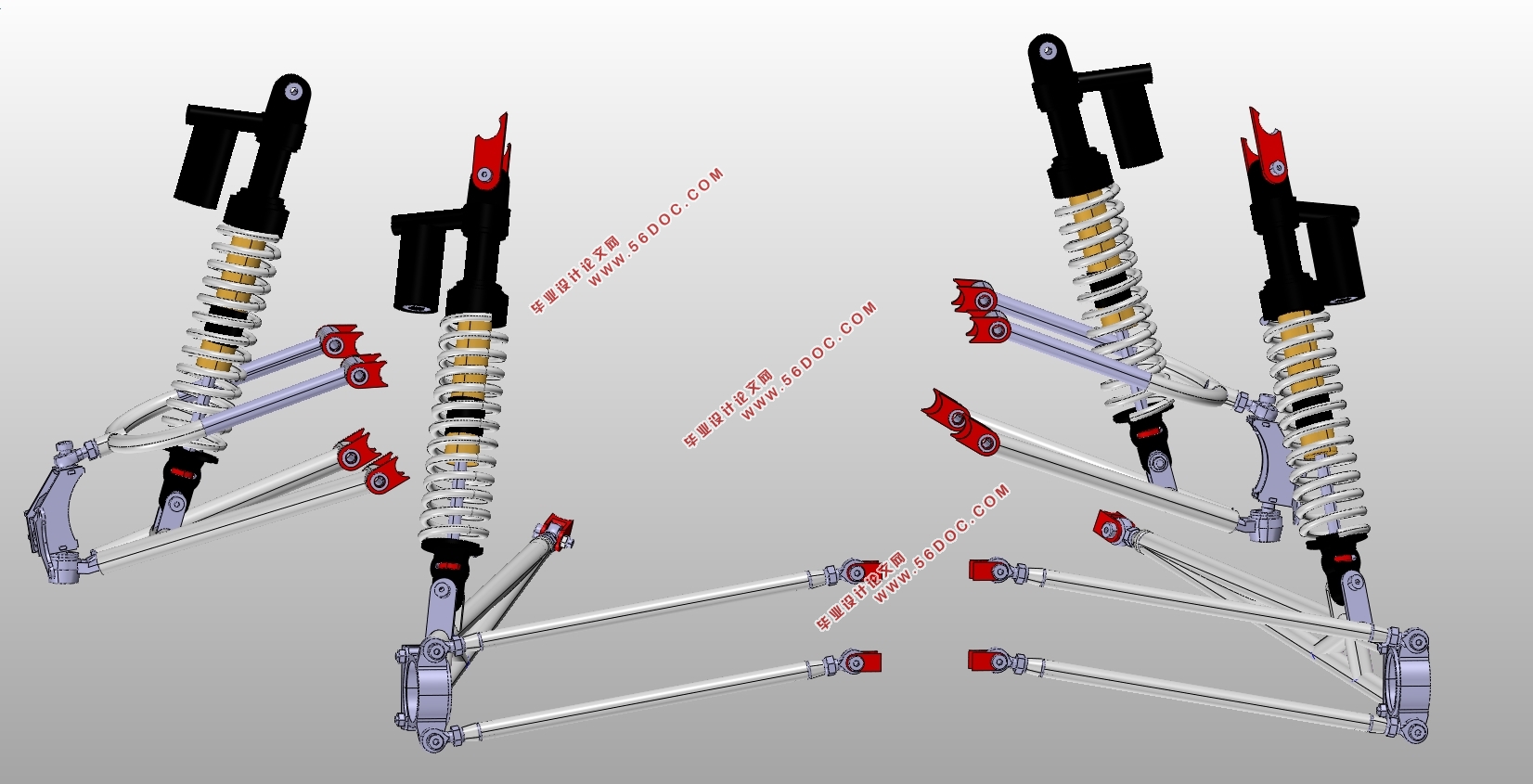
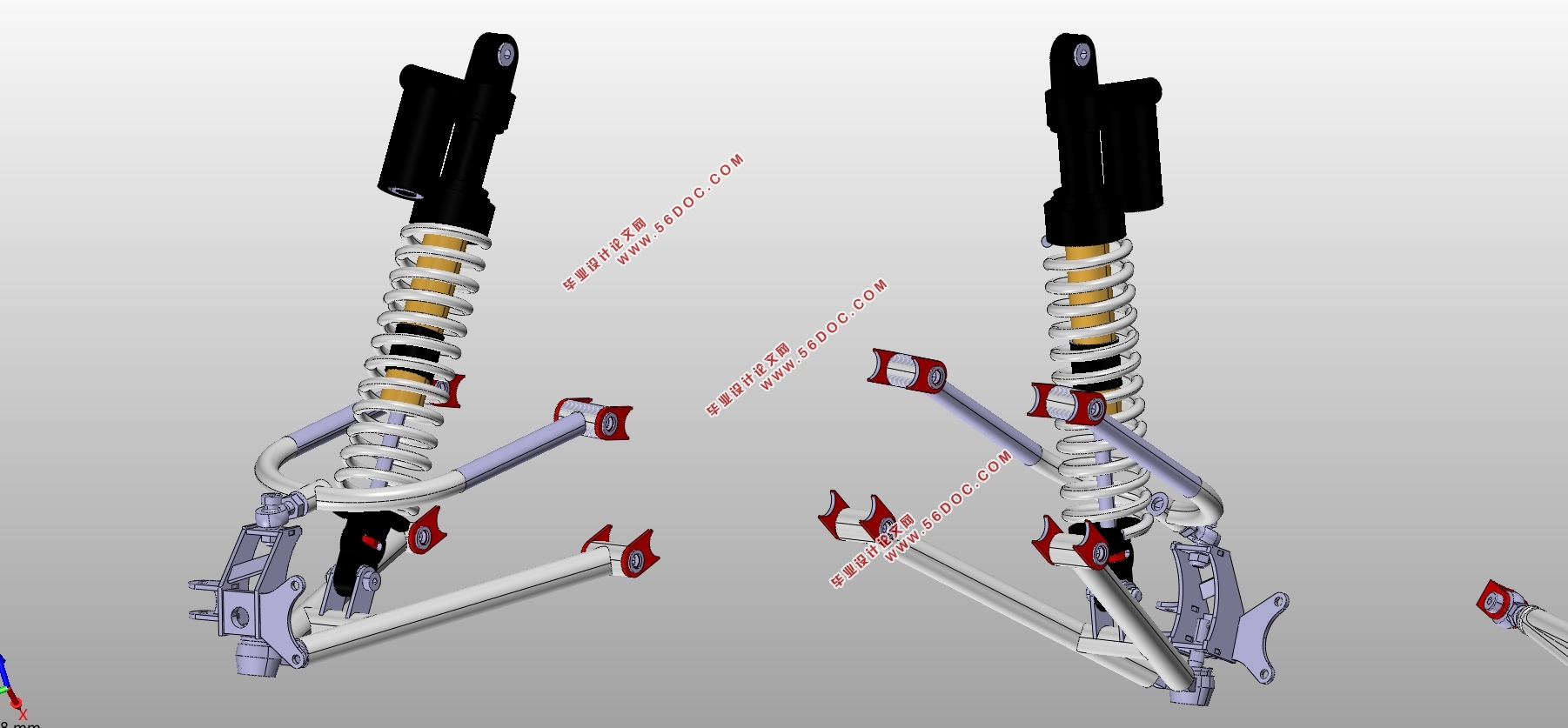
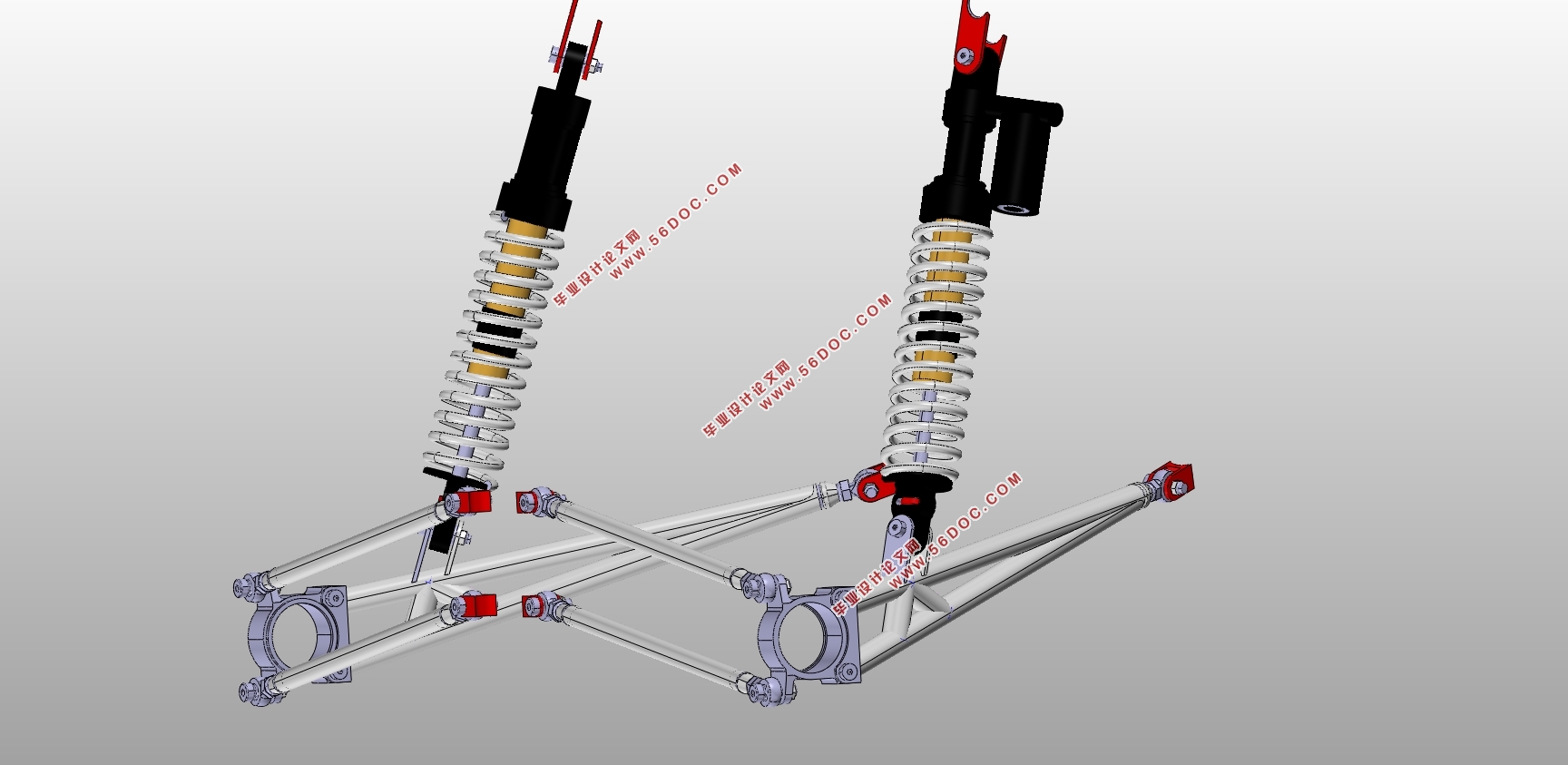
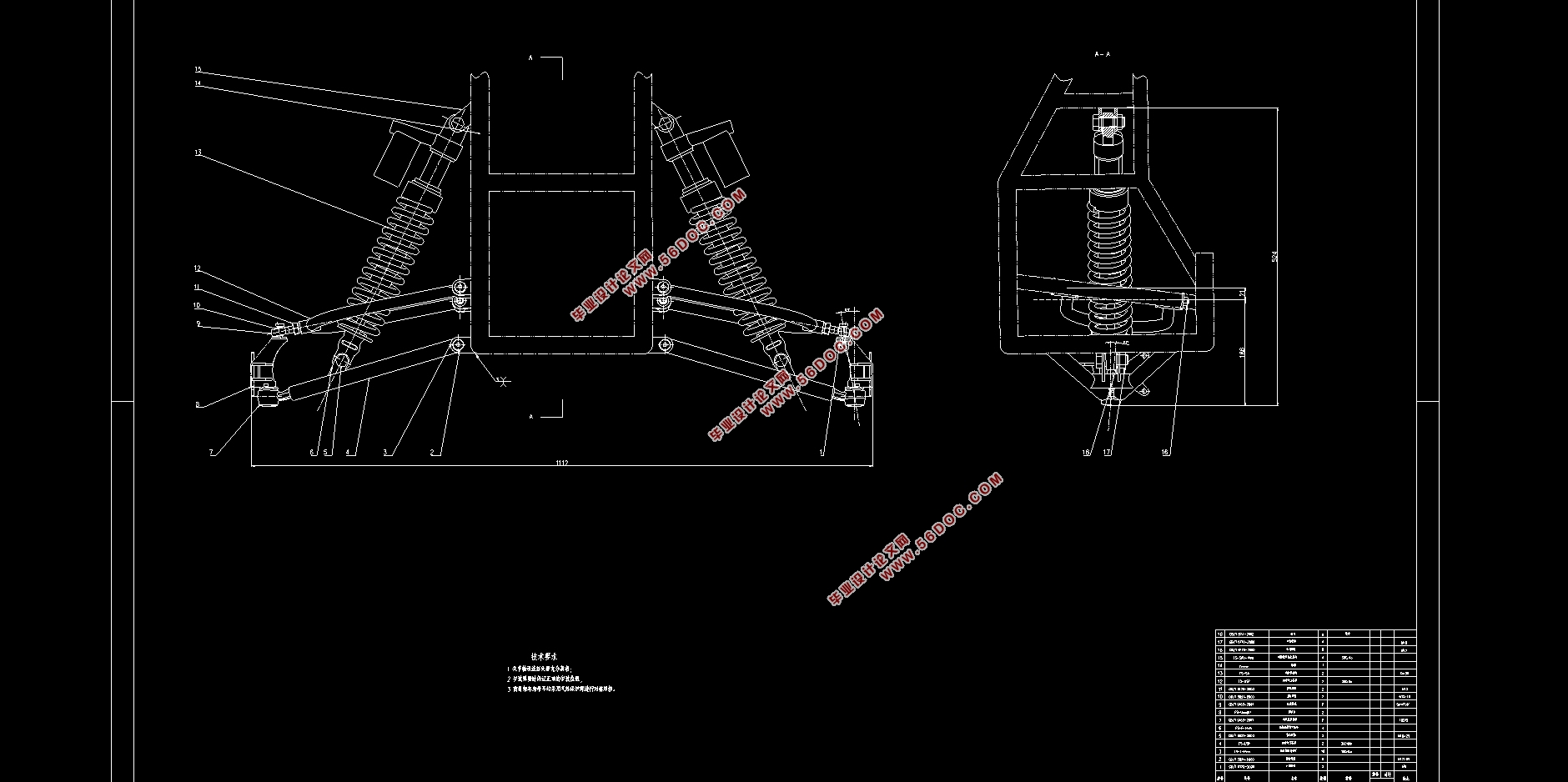
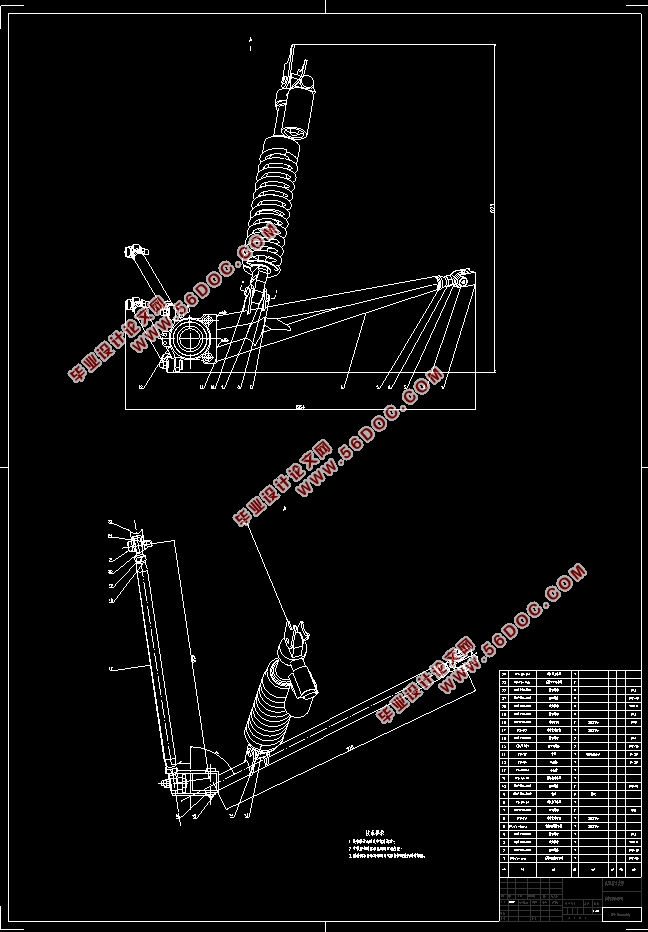
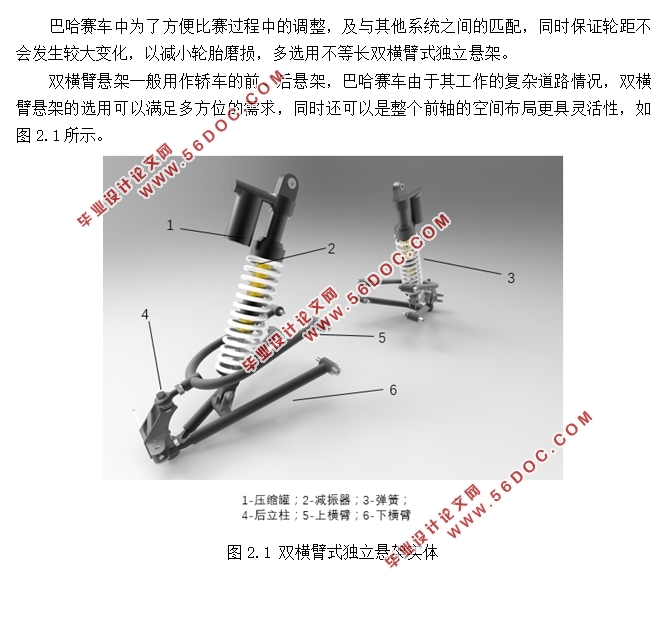
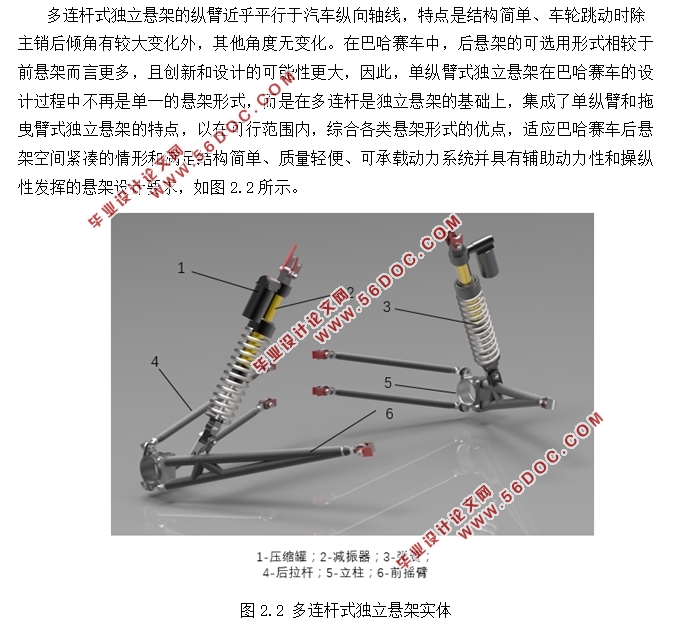

目录
第1章 绪论 1
1.1、巴哈赛车悬架系统概述 1
1.1.1、研究背景 1
1.1.2、国内外发展情况和现状 1
1.2、研究的内容和方法 2
第2章 巴哈赛车悬架系统的结构分析 4
2.1、巴哈赛车悬架作用 4
2.2、巴哈赛车悬架的组成 4
2.2.1、悬架系统的结构 4
2.2.2、巴哈赛车常用悬架 4
2.2.3巴哈赛车悬架选型 6
2.3、巴哈赛车悬架的要求 8
2.4、本章小结 9
第3章 前悬架设计 10
3.1、前悬架设计 10
3.1.1、设计输入参数 10
3.1.2、承载特性 10
3.2、零部件设计 12
3.2.1、螺旋弹簧设计 12
3.2.2、减振器设计 16
3.2.3、导向机构设计 18
3.3、前悬架CATIA三维建模 22
3.4前悬架硬点分析 23
3.5、运动学特性分析 25
3.6、本章小结 28
第4章 后悬架设计 29
4.1、悬架布置位置确定 29
4.1.1、前摇臂车身固定点选择 30
4.1.2、后拉杆车身固定点选择 30
4.1.3、减振器车身固定点选择 31
4.2、后悬架结构设计 32
4.2.1、前摇臂设计 32
4.2.2、后拉杆设计 33
4.3、减振器参数设计 35
4.4、后悬架CATIA建模 37
4.5、本章小结 38
第5章 巴哈赛车悬架系统分析及仿真 39
5.1、前悬架静力学分析 39
5.1.1、巴哈赛车前悬架上横臂静力学分析 39
5.1.2、巴哈赛车前悬架下横臂静力学分析 40
5.1.3、巴哈赛车后悬架前摇臂静力学分析 41
5.2、巴哈赛车前悬架运动学特性分析 42
5.2.1、Adams建模思路 42
5.2.2、Adams建模分析 43
5.3、本章小结 45
结 论 46
1、研究结论 46
2、设计亮点 46
3、未来展望 46
致 谢 48
参考文献 49
|
